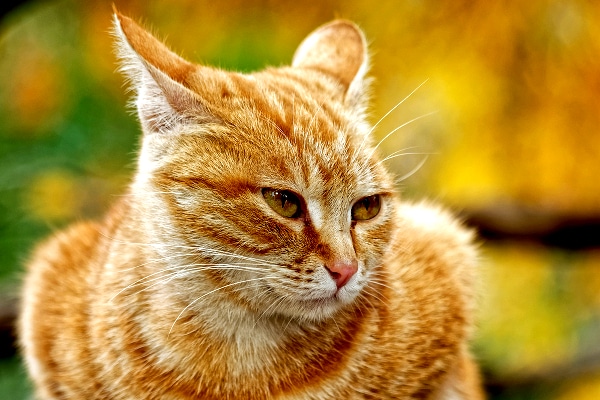Why Do Cats Chew on Things?
“Unlike
dogs, which are notorious for their love of chewing, cats aren’t particularly
known for nibbling on much other than food. However, chewing is a somewhat
common behavior in cats. ‘Consider a cat’s prey,’ says Dr. Carlo Siracusa,
clinical assistant professor of behavior medicine at the University of
Pennsylvania School of Veterinary Medicine in Philadelphia. ‘Cats have to chew
on their prey to disassemble the bodies & eat. It’s a behavior that can
very easily enter other areas of a cat’s life.’
Cats may
chew on everything from plastic bags & wires to wood & certain types of
fabrics. While the behavior on its own shouldn’t necessarily be cause for alarm…if
a cat’s urge to chew becomes compulsive, it can lead to serious issues.

The Chewing Spectrum
Dr. Nicolas
Dodman, a pet behavior expert, professor emeritus at the Cummings School of
Veterinary Medicine at Tufts University…says that chewing in cats occurs on a spectrum,
much like other behaviors. ‘There is no such thing as normal or abnormal
behaviors,’ he explains. ‘Everything is on a spectrum. So at one of the
spectrum you may have cats that don’t chew at all, unless they’re eating their
kibble. But at the other end, you’ve got a cat that is completely obsessed with
eating fabrics, shower curtains, & shoelaces…’
…Wires, in
particular, can be very hazardous when a pet parent is dealing with a cat who
chews…

Why Might Cats Chew
Chewing
behavior comes pretty naturally to cats, & Siracusa says they may become
more pronounced in indoor cats due to their lifestyle. ‘Cats’ instinctual
feeding & exploratory behaviors are tied to chewing,’ he explains. ‘But cat
food…is not a natural food for cats. When an animal is set up to perform a
certain behavior by instinct, but you change that animal’s environment, that
behavior doesn’t go away. It persists.’
As such,
some chewing by cats can be expected; it’s just when the behavior becomes
compulsive that owners should start taking notice. Dodman likens more serious
chewing to obsessive compulsive disorder in humans. ‘A lot of the more extreme
chewing behaviors are brought on by anxiety,’ he says. ‘You tend to
see it more in high-strung breeds like Siamese cats, or just cats that have
anxious, nervous, or fearful dispositions. It’s much less common in the more laid-back
breeds, like Persians.’
Dodman also
notes that anxiety can also manifest as suckling or hair-pulling behaviors,
which studies have shown are often seen in cats who were weaned too early…

Addressing Chewing Behaviors
If a cat
does exhibit compulsive chewing behaviors, there are several options for
owners. The first is to redirect the behavior with toys or even chew treats. ‘Many
cats do settle down when provided with a toy that they can chew on,’ Siracusa
says. ‘The toys stimulate the predatory behaviors &, in many cases, it will
satisfy the urge to chew.’
This
approach tends to work best with cats who are only occasional chewers. If the
cat is compulsive, then further action will need to be taken. In more severe
cases, Dodman has prescribed mood-stabilizing medication. ‘Anti-obsession
drugs, like those in the Prozac family, work really well when treating
compulsive disorders. They help reduce anxiety & just stabilize an animal’s
take on the world. So if your cat is stressed or anxious because you’re at work
all day, over time, these drugs will help prevent them from becoming upset,’…
so if a cat has compulsive chewing behaviors, schedule an appointment with your
veterinarian'”
Kate Hughes
Petmed.com
Jan 29/2018
Cute Cat Pics:
Weekly Chuckle:
#StaySafe
#StayHome


































